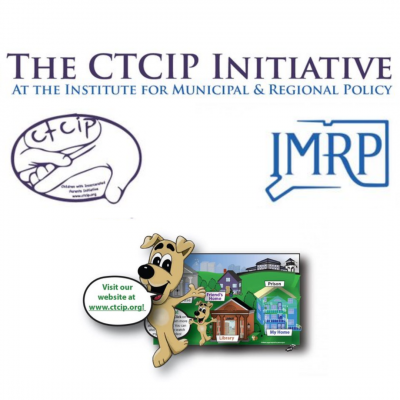 The Institute for Municipal and Regional Policy’s (IMRP) Connecticut Children with Incarcerated Parents (CIP) Initiative is led by Project Manager Aileen Keays.
The Institute for Municipal and Regional Policy’s (IMRP) Connecticut Children with Incarcerated Parents (CIP) Initiative is led by Project Manager Aileen Keays.
The team, also including Irvine Peck’s-Agaya and Dr. Jim Conway, are guided by seven principles. These include:
- Practices should be designed specifically with CIP needs in mind
- Include CIP and their families in the process of program development, implementation, and evaluation
- The relationship between the child and the incarcerated parent should be supported
- Programs should reach children and families to get “self-referrals”
- Stigma and isolation associated with incarceration should be reduced
- Emphasis on connections, collaborations and coordination among agencies and community partners
- Evaluation and accurate data are critical for identifying evidence-supported practices
The Initiative offers a variety of services that are briefly outlined below.
They provide funds for direct care services to CIP and their families, and work with faculty on evaluating the effectiveness of these services. To assist with accurate evaluation, they created two assessments designed specifically for CIP. These resources were also designed to help providers and funders across the nation who seek to understand the impact of their service on children. One measures the child’s level of attachment to their incarcerated parent. The other measures levels and types of stigma and shame that the child experiences. This measure is being piloted by a statewide provider.
CIP Initiative provides training, technical assistance, and consultation on how parental incarceration impacts kids and how to support them and their families. They provide training to other state agencies, non-profits, community members, schools, counselors, Head Start, etc. The Initiative also provides resources specifically for children. Their interactive website provides accurate information directly to children in a child-friendly manner.
The Initiative also works with policymakers to encourage policy that supports CIP and/or mitigates unnecessary harm to them. Recently a bill was passed to provide free telecommunications from prison, which will help families remain connected and supportive of one another.
Their work also includes independent research to help inform others on how parental incarceration impacts kids and how best to support them. The National Institute of Corrections, recently published one of their reports entitled “Seven Out of Ten? Not Even Close”.
In the near future, CIP Initiative hopes to pilot workbooks in Connecticut prisons. Created for family reentry, these workbooks will support soon-to-be-released incarcerated parents and their children. They are intended to address what returning will be like, fears and hopes about reentry and things that should or should not change once the parent returns home.
CIP Initiative also offers scholarships for CCSU (and now UConn) students who have experienced incarceration of a close family member. They are excited to offer support and connect with UConn students soon.